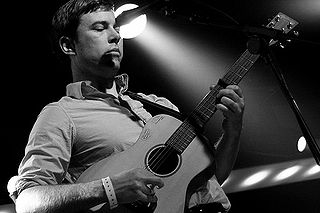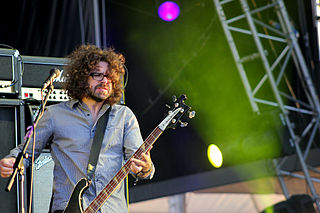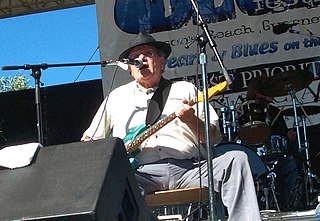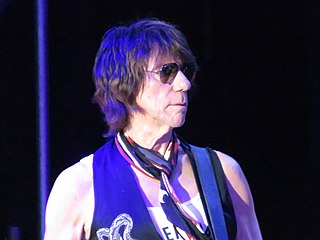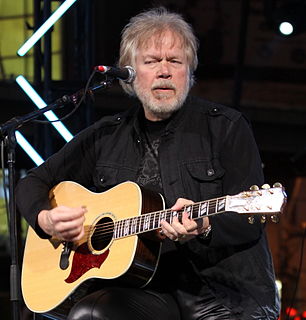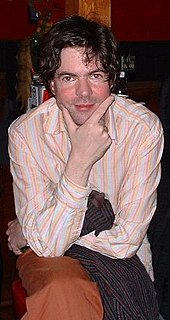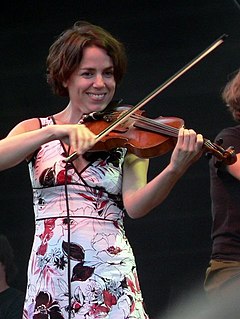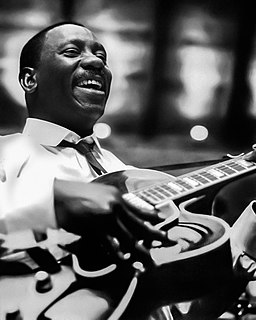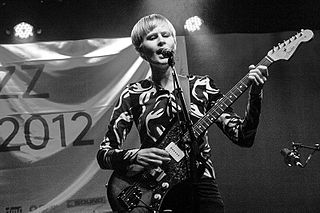A Quote by Bill Callahan
I knew absolutely nothing about recording. I had this four-track recorder, and I'd plug my electric guitar right into it, which sounded real bad. I moved any fader that made a drastic change in sound. I thought that was cool - that it was communicating something. I didn't have the skills to do anything subtle. It was just like screaming.
Quote Topics
Related Quotes
After discovering the Ramones, I discovered really crude ways to multi-track by taking another cassette recorder and plugging that into the eight-track, playing it back, so that as I was recording with the mic in my guitar, I could have another cassette player I had recorded on feeding into the recording.
I loved the idea of recording. The idea of sound-on-sound-recording captured me as a young kid, and once I realized what it was I had an epiphany. Before I was even playing the guitar, I would create these lists of how I would record things and overdub them, like Led Zeppelin song, 'I could put this guitar on this track...' and so on.
Michael Bloomfield was the antithesis of a collector ... he didn't care how old a guitar was; all he wanted was something that sounded good when played it ... and he cared nothing about the collectibility of an instrument ... his philosophy was "A good player can make any guitar sound good" ... to Michael, a guitar was just a tool.
If you're recording the song on your four-track in your kitchen, when you finished writing the song, you're recording, and it's cool, and honor that. And maybe that's the version that should be released. And if you're recording the song again, it shouldn't be because there's a version you love that you're chasing. It should be because "You know what? I made a recording, but I don't love it emotionally." So, okay, then record again. And be in it and take advantage of the buzz and energy of "I'm getting to record right now!" It's such a beautiful and cool privilege.
I got a new 4-track cassette recorder a year or so after high school. For a while I would just stare at it thinking, how am I going to do this if I don't play guitar or keyboards? How am I going to write and record a song if I don't know how to play any instruments? I mean, I played the violin, but I didn't know anything about how to work a 4-track.
but do i need to say anything?" sophie asked. "do i need to learn any words?" "like what?" saint-germain said. "well, when you lit up the eiffel tower, you said something that sounded like eggness" "ignis" the count said. "latin for fire. no, you don't need to say anything." "then why did you do it, then?" sophie asked. saint-germain grinned. "i just thought it sounded cool.
I don't know whether it was his (Charlie Christian's) melodic lines, his sound or his approach, but I hadn't heard anything like that before. He sounded so good and it sounded so easy, so I bought me a guitar and an amplifier and said now I can't do nothing but play! Really, welding was my talent, I think, but I sort of swished it aside.
